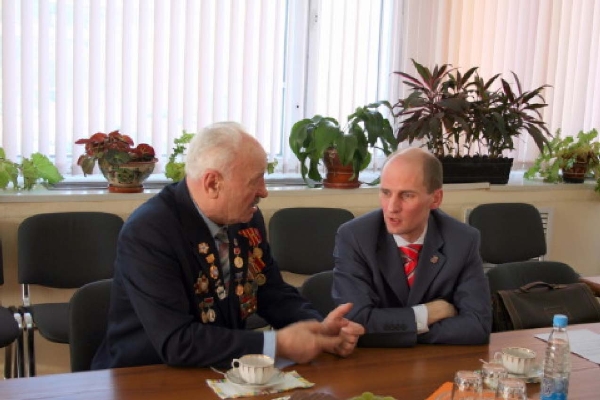![]()
The Words of the Ohtsuka Family
|
|
The Words of the Ohtsuka Family |

Moscow, Russia -- At the Institute of the Far East, Russian Academy of Sciences, a round-table meeting on the "Korean War: Lessons of History" was held on February 15. Initiated by the Center of Korean Research and timed to the Memorial Day of Russians who discharged their military duty in other countries, it was the first event of the kind.
Among the participants were Russian Korean War (1950 -- 1953) veterans, scientists, public figures, and media. They discussed the scope of the problems regarding the lessons of the Korean War in connection to the present situation on the Korean Peninsula.
The veterans -- deputy chairman of the Korean War Veterans' Council, Yanus Vasilyevich Kanov, and members of the Council: Vladimir Pavlovich Arsenkin, Ambassador for Peace, and Edouard Alexandrovich Adamchevsky -- shared their reminiscences about participation in military operations when they were enlisted in the Air Corps 64 of destructive fighters on the Korean Peninsular. A member of the central administration of the Russian -- Chinese Friendship Society, Alexander Ivanovich Koval, told about his initiative of searching for the burial places of Soviet pilots who perished during the Korean War in Dalian (Port-Arthur).
Testimonies of veterans and eyewitnesses help to recreate the true historical picture of the Korean War developments, free from distortions and incorrect treatment in media. This issue was discussed between Elena Iosifovna Fedorova, director of School 103, Moscow, in which the unique Korean War Veterans' Museum was established, and Larisa Vladimirovna Zaichuk, director of the Museum.
Editor of the analytical informational portal "United Korea" and coordinator of the Russian branch of the North-East Aisa Peace Initiative Konstantin Zharinov reported about his work in collecting the materials and documents about history of the Korean War. In his opinion, the contacts of veterans from Russia, USA, China, North and South Korea could and should promote reconciliation and harmony of the people in the North and South of Korea and work to normalize the situation on the Korean Peninsula.
Referring to his studies, the senior scientific associate of the Center for Korean Research, Kim Yen Un, and the chief scientific associate of the Center for Research and Scientific Prognostication of Relations between Russia and China, Vladimir Evgenyevich Petrovsky, described the complicated and contradictory dynamics of the conflict between two parts of Korea involving participation of the outside forces (including UN) that led to war and perpetuation of their division.
In conclusion of the discussion, the head of the Center for Korean Research Institute of the Far-East, Russian Academy of Science, Alexander Zakharovich Zhebin emphasized that the present political and military situation on the Korean Peninsula, notable for instability and unpredictability, is rooted in dramatic events of the Korean War. He encouraged participants not to forget the historical lessons of this war. In this respect, efforts of the veterans in their grassroots activity for establishing contacts and dialogue with veterans of the Korean War from other nations could help to reduce tension and bring closer the day of historical reconciliation between North and South Korea.